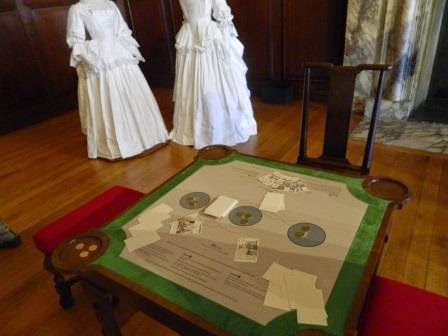I love
history, especially the 18th century and the more I learn about the
Georgians, the more it appears they oversaw the birth of many things familiar
to us today. Take shopping for example.
Before the
1700’s most trade was done direct, straight from producer to customer. If you
needed a chicken, you went to a farmer to buy one and if the farmer produced
surplus stock, then he took those chickens to market. Likewise craftsmen
produced to order and had no need of shop premises because customers approached
them directly. People shopped out of necessity, rather than for leisure –
perhaps with the except ion travelling pedlars hawking more unusual goods such
as tea, tobacco, spices and ribbons.
 |
| 1734 - people visited fairs (Southwark Fair featured here) to spend money and enjoy themselves |
But in the
18th century London expanded at a tremendous rate. Money was poured
into building grand terraces, opulent squares and imposing town houses –all of
which needed fixtures, fittings and furnishings. A demand for merchandise was
born that distanced the consumer from producer. Canny merchants spotted the
opportunity to buy good and supply them to towns and cities – the demand for
goods as luxuries, rather than necessity had started.
These shops
were often open from 8am to 11pm and as more shops opened so competition for
custom grew and window displays became important to entice the shopper inside.
Bow fronted windows gave a larger stage on which to showcase goods.
 |
| An 18th century shoe shop |
But this fledgling consumer
society was not without disadvantages for the shopkeeper. The majority of goods
did not have a fixed price and could be bargained over (a hark back to haggling
in the market) and it was considered ‘odd’ to marks items with a price tag and
not haggle. When a purchase was made, it was usual to put goods on account,
rather than pay up front. Often a customer ran up an account for a year before
settling what he owed – and if he didn’t feel like paying in full, there was
little a shopkeeper could do about it.
As the
century deepened, so shopping became an entertainment in itself, with people
idling away the hours at different shops but with no intention of making a
purchase:
"I have heard, that some
Ladies, and those too persons of good note, have taken their coaches and spent
a whole afternoon in Ludgate Street, or Covent Garden, only to divert
themselves in going from one mercer's shop to another, to look upon their fine
silks, and to rattle and banter the shopkeepers, having not so much the least
occasion, much less the intention, to buy anything; nay, not so much as carry
any money out with them to buy anything if they fancied it."
Daniel Defoe – The Complete
Tradesman
 |
| Buying a new muff |
Indeed,
shopkeepers were expected not only to put up with having their time wasted, but
to be cheerful about it!
“[The shopkeeper] must never be angry, not so much as seen to
be so, if a customer tumbles him £100 worth of goods and scarce bid for
anything”
Daniel Defoe – The Complete Tradesman
So you see, in the 18th
century people stopped shopping to live, and lived to shop! It was also a time
when people with spare income spent it on entertainments such as the theatre or
visiting a pleasure garden (as featured in The Ringmaster's Daughter). 

.jpg)









.jpg)